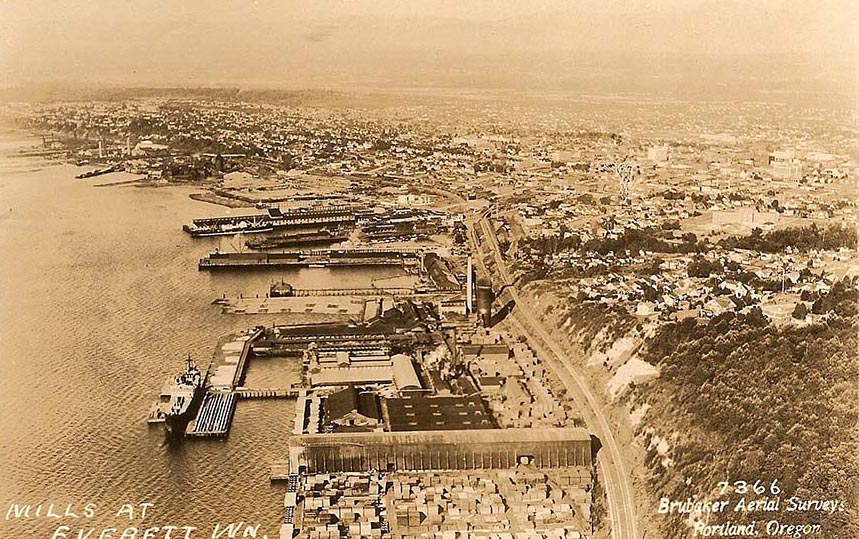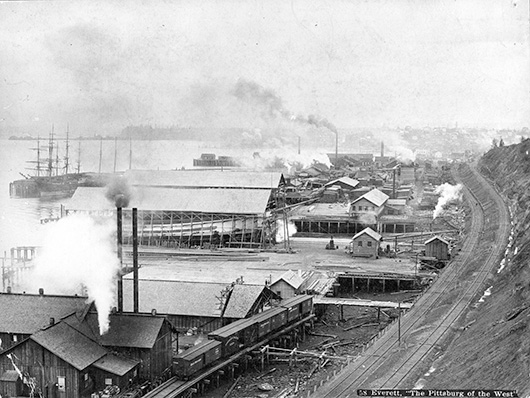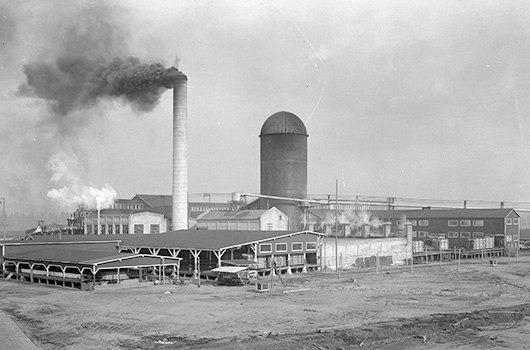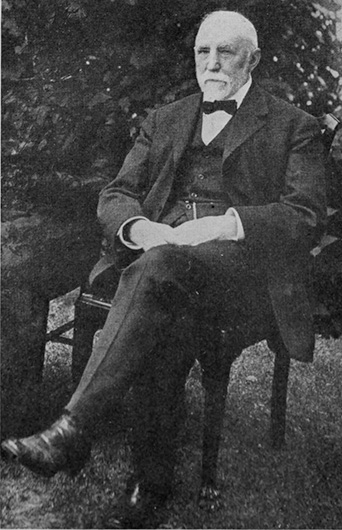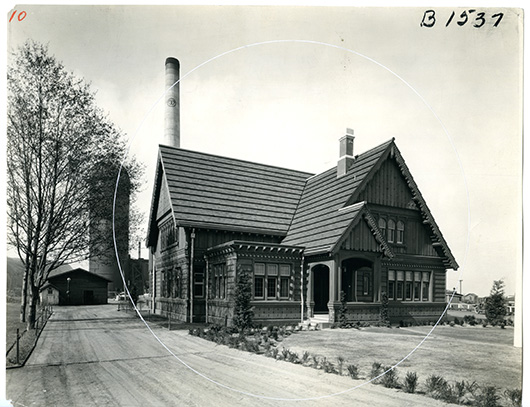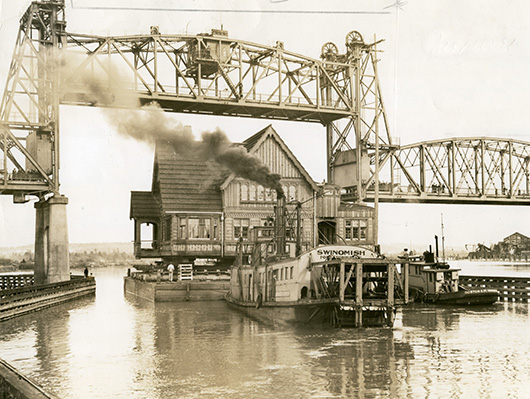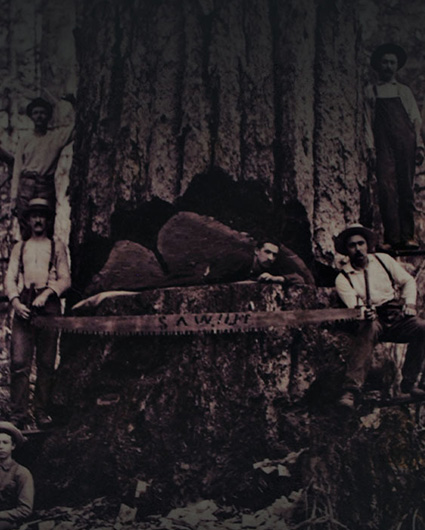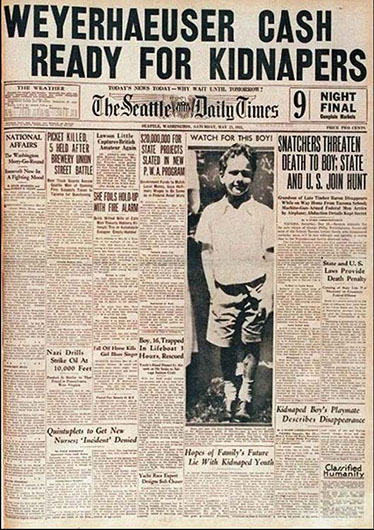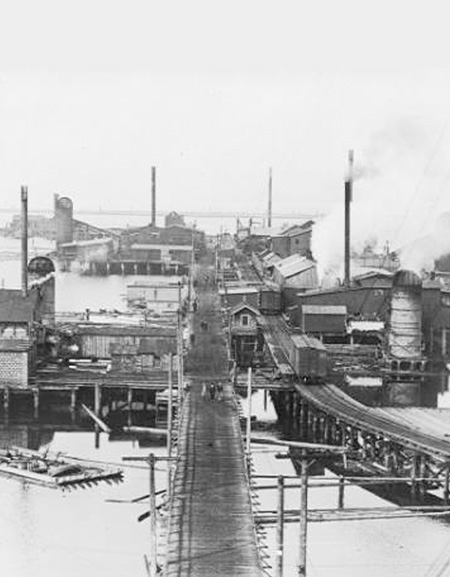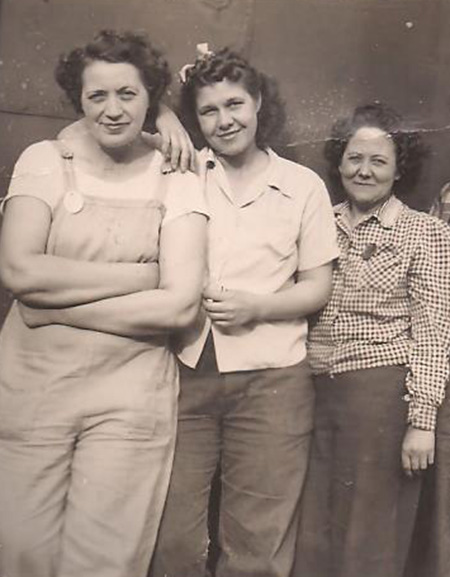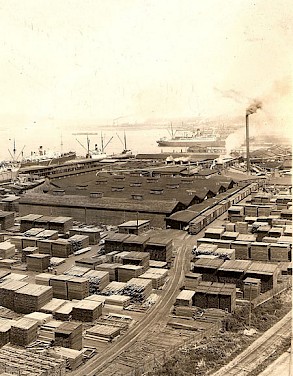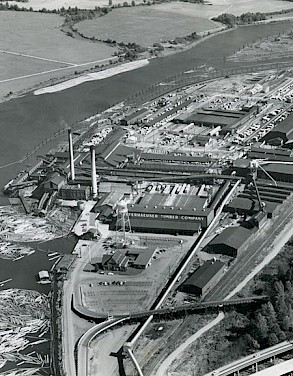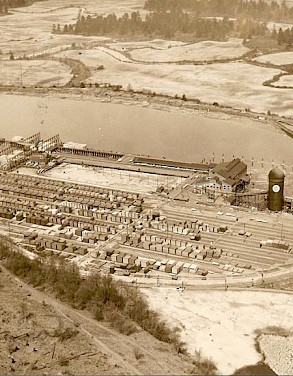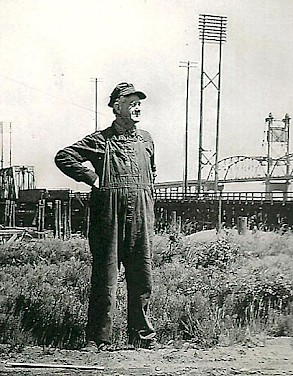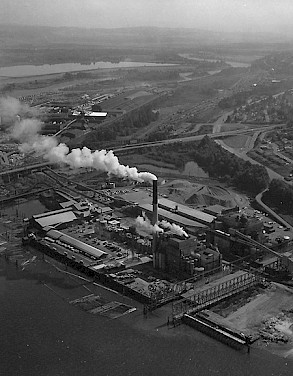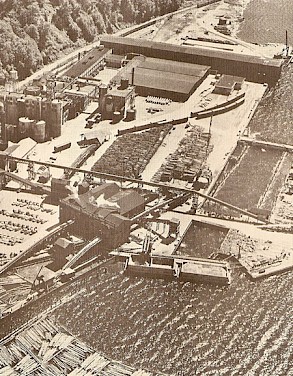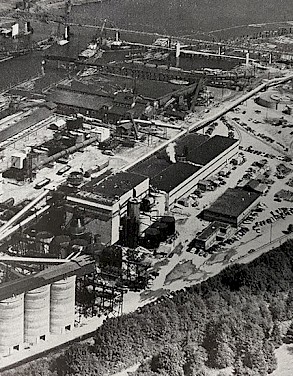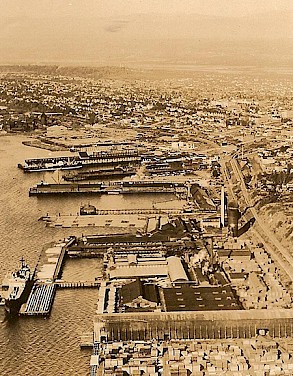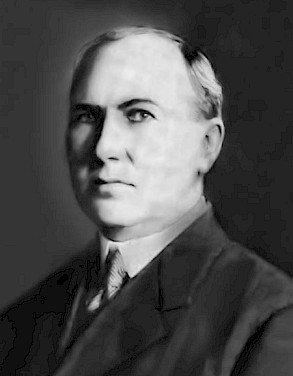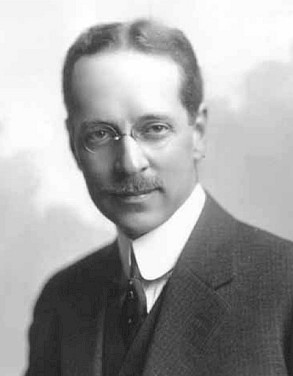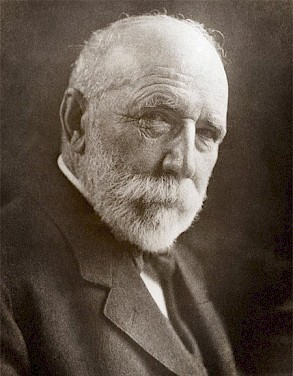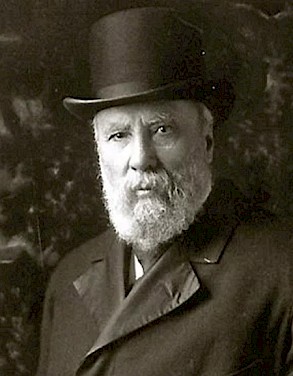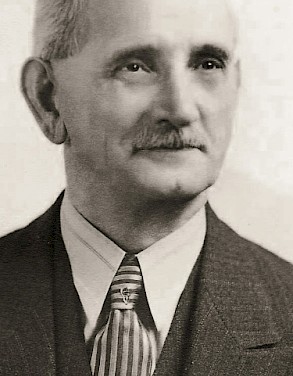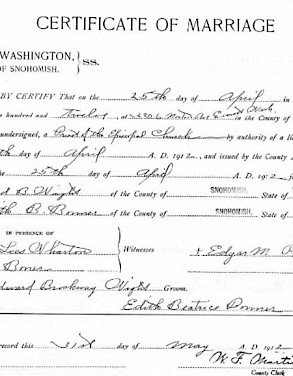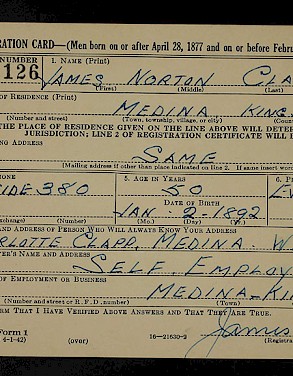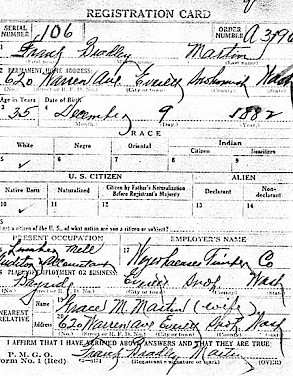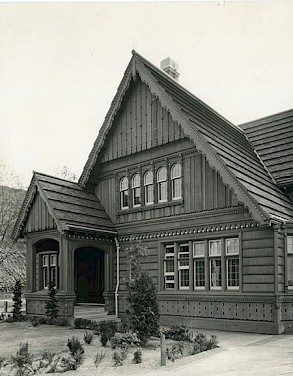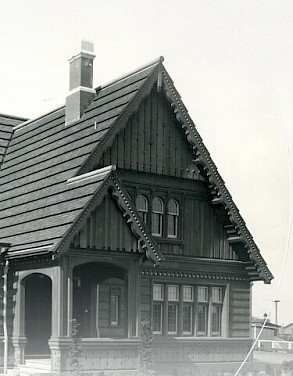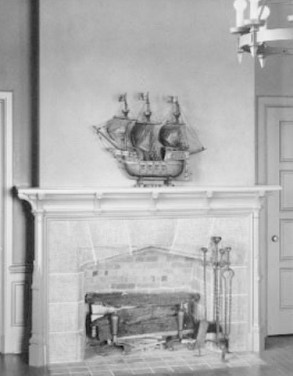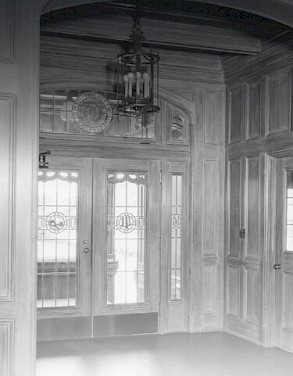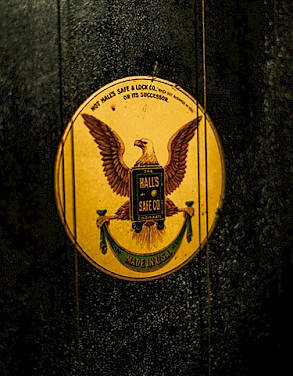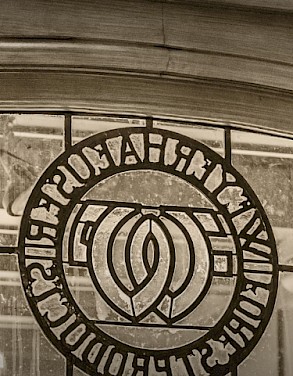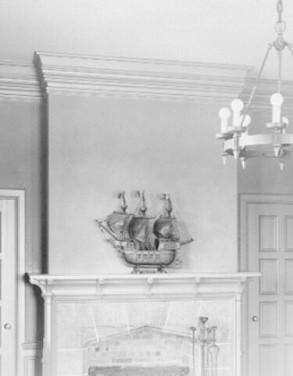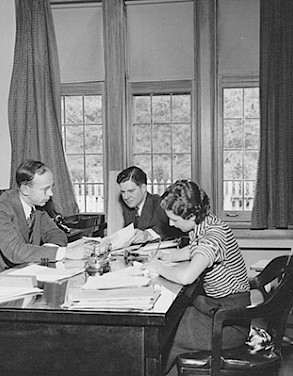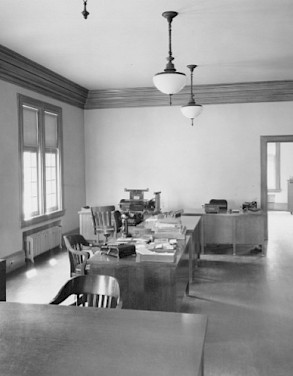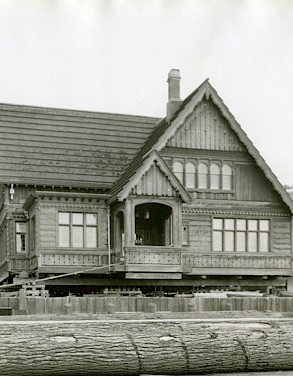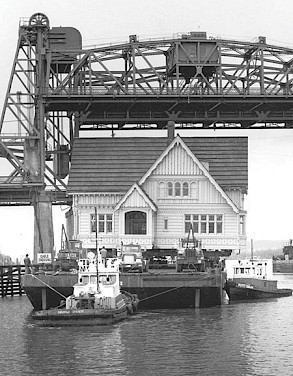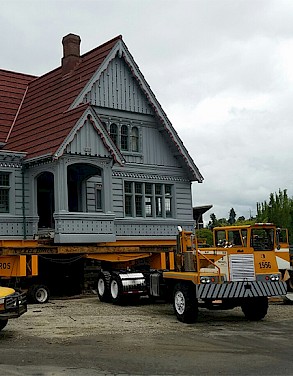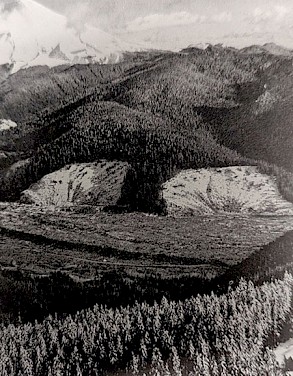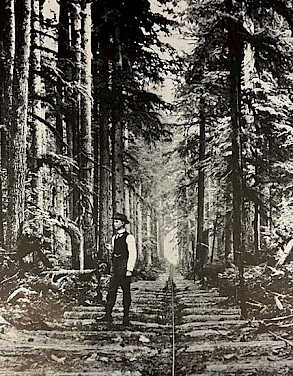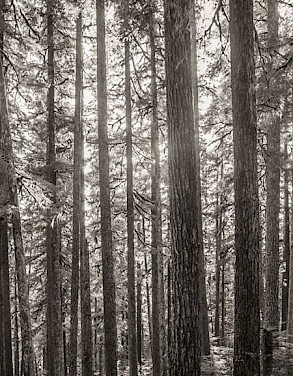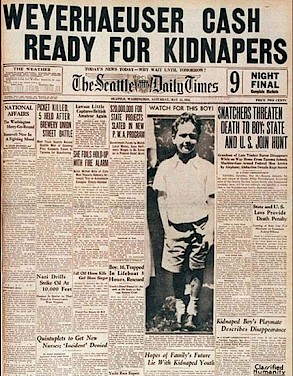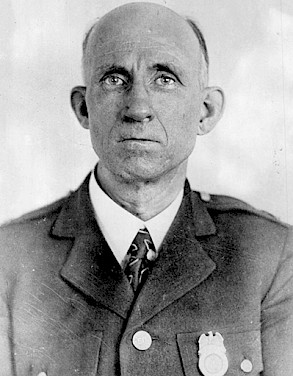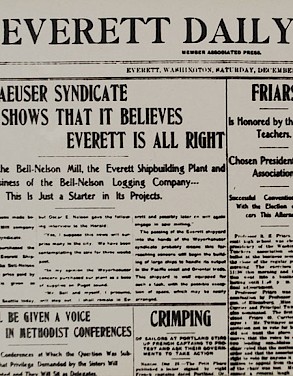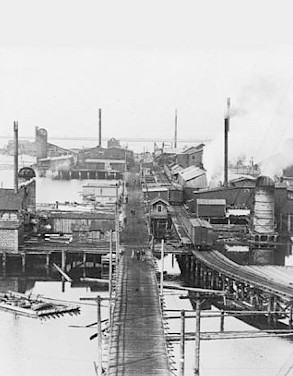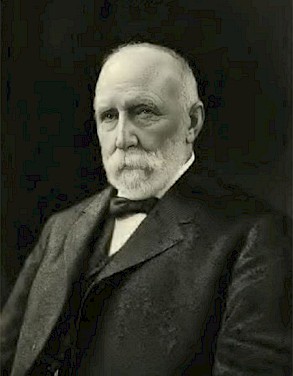In 1900, Frederick E. Weyerhaeuser, with the help of 11 investors, bought 900,000 acres of timberlands in Washington, forming the Weyerhaeuser Timber Company.
The company owned and operated several mills in Everett, but two, in particular, left their stamp on the waterfront: Mills A and B. For decades the company was Everett’s largest employer, with 1,800 to 2,000 employees. The Mill A site is now the Port of Everett’s South Terminal, and the Mill B site is now the Port-developed Riverside Business Park.
Mill A
The Weyerhaeuser Timber Company purchased the dilapidated Bell-Nelson sawmill in 1902, including its logging equipment and timber reserves. After the company upgraded the mill, the Everett plant produced primarily Douglas fir lumber, which expanded to include structural timbers (stringers, beams, girders, column posts) in 1922. Weyerhaeuser closed Mill A in 1936 to build a sulfite pulp mill on-site.
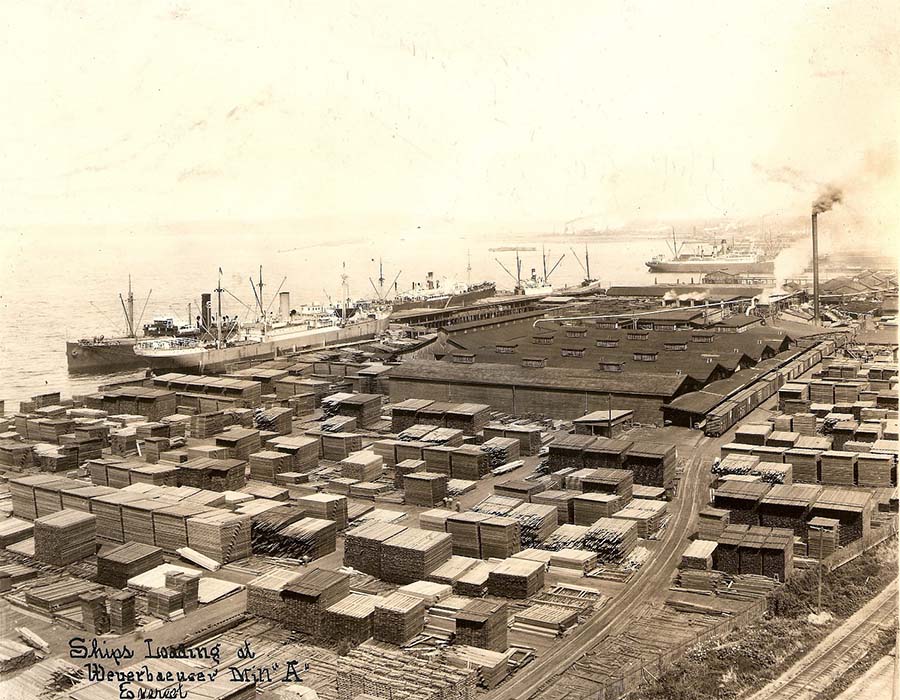
Mill B
Weyerhaeuser constructed a second sawmill in 1915, hoping to capitalize on the Panama Canal, which opened in 1914. It was the first all-electric sawmill on the West Coast – which far outpaced the lumber yields of its competitors steam-powered mills. Like Mill A, this mill produced Douglas fir lumber and structural timbers. When its technology aged out, Weyerhaeuser closed the mill in 1979.
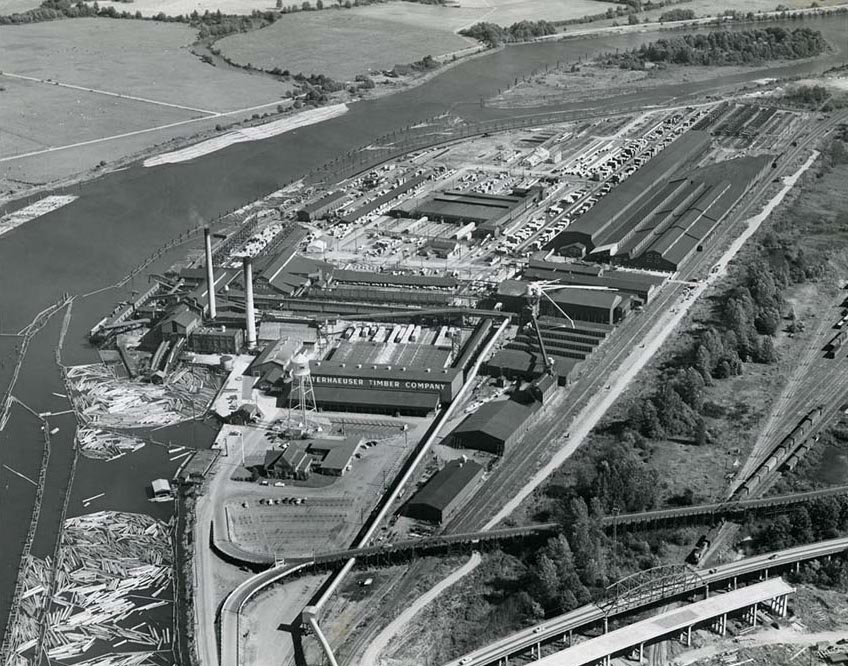
Mill C
Weyerhaeuser’s third Everett mill was built in 1923 to focus on timber other than Douglas fir. This sawmill produced primarily hemlock and cedar lumber, although small logs were also manufactured here. By 1949, Mills B and C operated as a single plant with sawmill, dry-kiln and planing mill departments. Mill C was located where West Marine View Drive and the railroad bridge over the Snohomish River meet.
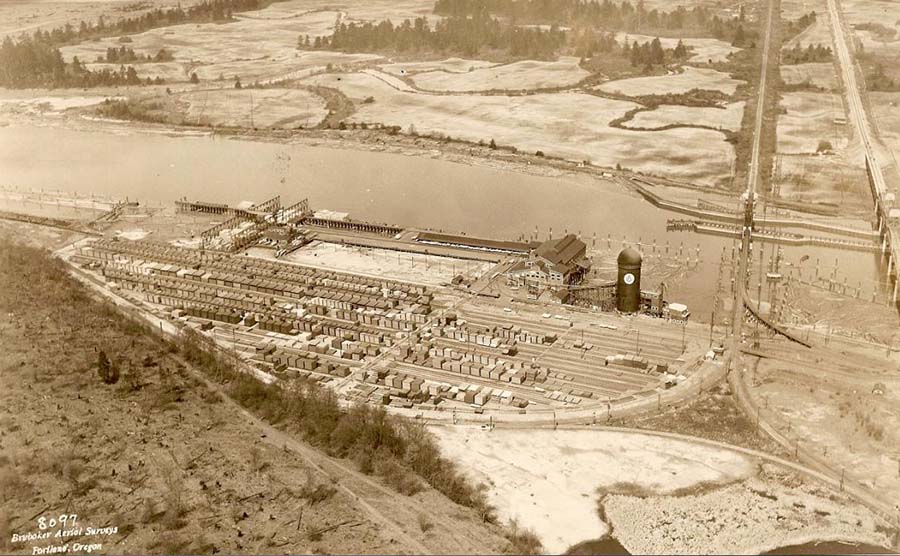
Mill D
The Weyerhaeuser Timber Company opened its fourth sawmill in 1965. This mill was designed to produce lumber from small logs only. After just six years, however, the company decided to shut down operations.
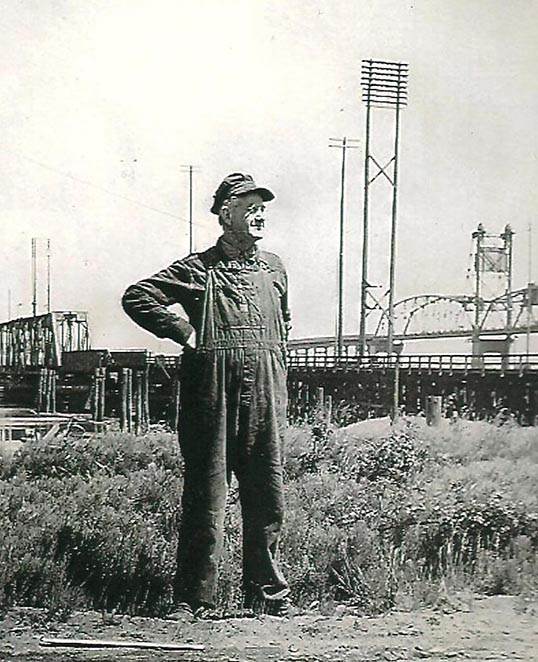
Mill E
With the construction of Mill E in 1971, Weyerhaeuser announced that it would close Mills C and D that same year. This sawmill was technologically innovative for its time because it manufactured small logs more efficiently than the former Mill D. It was also contributing to the company’s line of Pres-to-Logs by 1971.
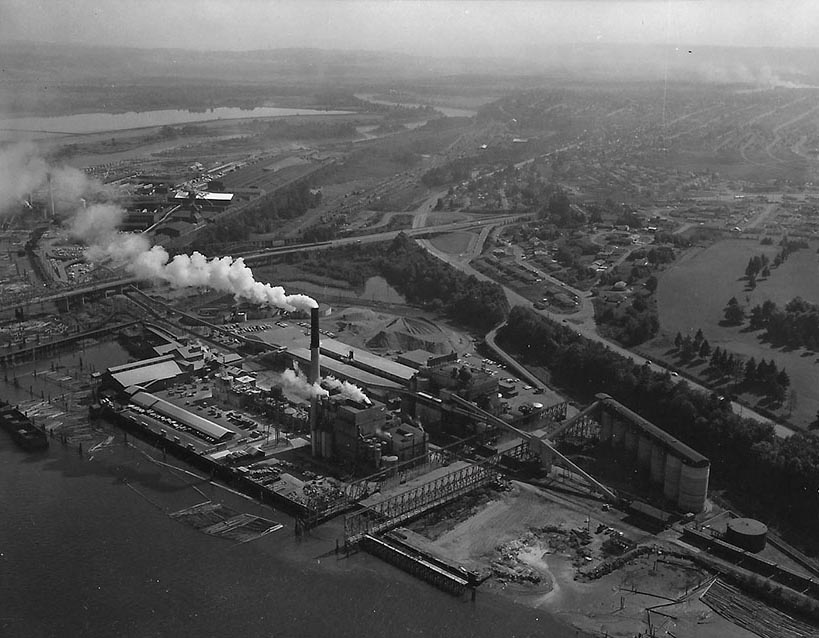
Sulfite Pulp Mill
When this pulp mill was built on the site of Mill A, the alphabetical names of Weyerhaeuser plants ceased. After 39 years of processing sulfite pulp for paper products (unbleached and bleached), the plant was converted into a thermomechanical pulp mill in 1975. Weyerhaeuser closed the mill five years later.
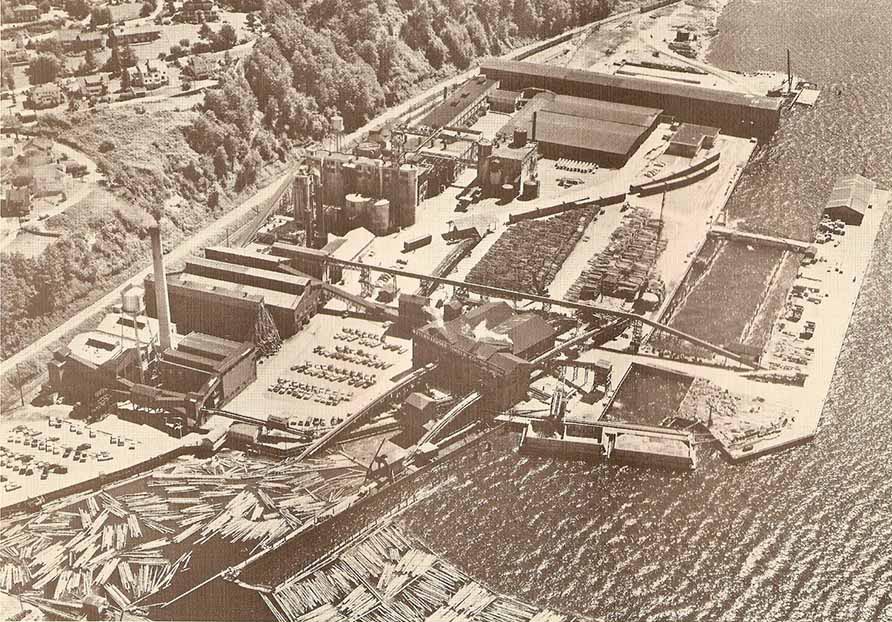
Kraft Pulp Mill
The western portion of Mill C’s property was redeveloped for the Kraft pulp mill. This mill was built nearby the Highway 99 bridge and the old Northern Pacific log dump. The mill produced all kinds of Kraft pulp for paper products, including bleached, high-brightness, soft and cellophane pulps. The Weyerhaeuser Kraft Mill closed after 39 years in operation.
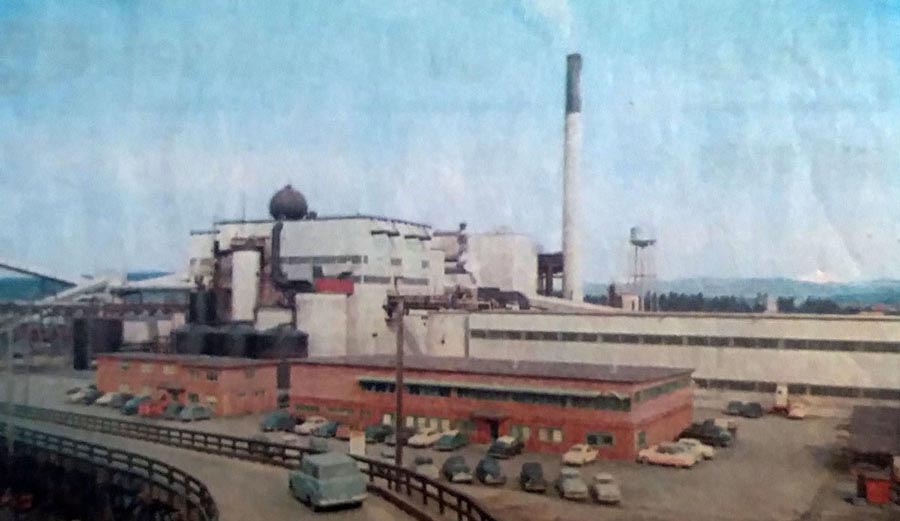
Press-to-Log Mill
This Everett plant manufactured Pres-to-Logs for at least 34 years. Another one of Weyerhaeuser’s lines of timber by-products, Pres-to-Logs are formed by compressing wood chips into logs, bricks and pellets.
